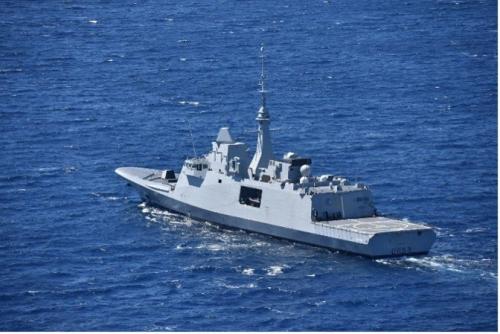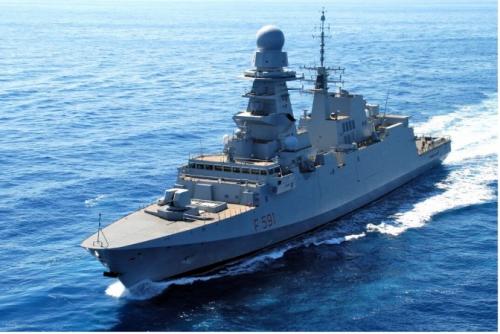
Maltese-flagged merchant vessel RUEN followed by EUNAVFOR drone
A warm welcome by the Operation Commander
Dear reader,
On 8 December, Operation ATALANTA reached the 15th anniversary, since its inception. For 15 years, we have successfully fulfilled our mandate of fighting piracy and providing maritime security in our Area of Operation. That said, recent developments hamper the freedom of navigation, especially in the Southern Red Sea. Beside the Houti’s threat, the resurgence of piracy, after four years of almost no cases, have shown us that in order to face the new challenges and remain successful, we need to adapt to the evolving threats in the region on a continuous base.
To this end, we have introduced an improved mechanism for info-sharing, based on the lessons identified in the last month. My expectation is that it will provide additional, positive results to the management of piracy-related events, but not only.
But as a real milestone in our recent history, we have again opened the possibility to enter Somali Territorial waters and airspace, for the objective of shadowing the pirated vessels, and hand them over o coastal authorities.
Furthermore, the decision by the EU authorities to temporarily halt the adaptation of the mandate of Operation Atalanta to include the task of ‘accompaniment’ in the Red Sea has given us more freedom of action, focussing on multiple cases of piracy. Especially for our available asset, ESPS VICTORIA, to concentrate on its anti-piracy tasks, while still taking ownership of our other main task: the protection of the World Food Program and other vulnerable shipping.
Currently, EUNAVFOR Atalanta is monitoring three ongoing piracy events in close conjunction with relevant stakeholders and local authorities.
I am proud as a Commander to see that, although we were facing personnel challenges due to the ongoing rotations and the holiday break last month, we still managed to ensure full support to the FHQ and the Operation throughout. In particular with regard to the monitoring of the aforementioned piracy events.
Keep up the good work, and have a safe, merry New Year!
VAdm Ignacio Villanueva Serrano
EUNAVFOR Operation Commander
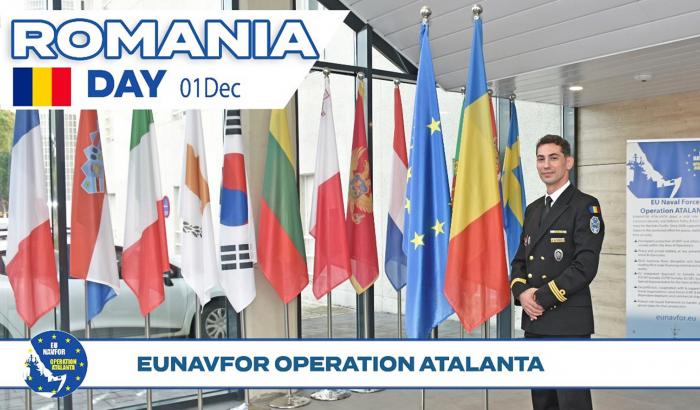
On 01 December, Operation ATALANTA congratulated crewmembers, friends and colleagues from Romania on their National Day.
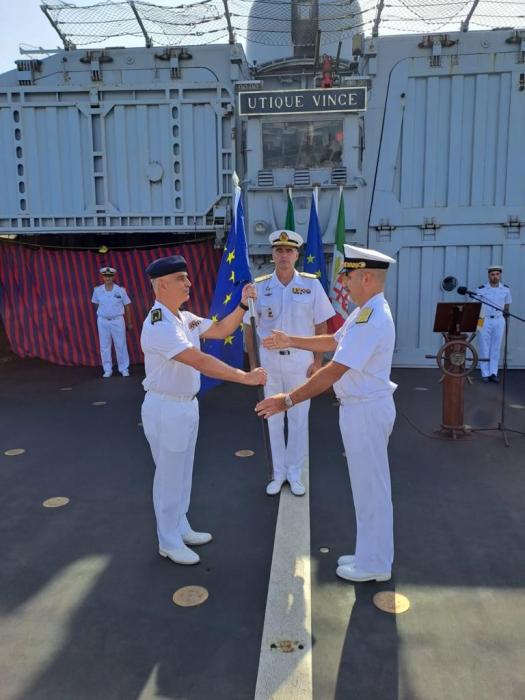
On 03 December 2023, the Force Commander of 🇪🇺 #EUNAVFOR ATALANTA, the Italian Rear Admiral Fabrizio Rutteri, handed over the Command of Task Force 456 to the Portuguese Commodore Rogério Martins de Brito.
The EUNAVFOR Operation Commander, the Spanish Vice Admiral Ignacio Villanueva Serrano, chaired the ceremony, which took place on board Italian destroyer DURAND DE LA PENNE, Force Headquarters flagship of the 44th rotation.

After the Handover Takeover ceremony, the EUNAVFOR Operation Commander Vice Admiral Ignacio Villanueva had the opportunity to meet the Djibouti Coast Guard Commander COL Wais Omar Bogoreh and the Djibouti Navy Commander COL Ahmed Daher Djama, together with the Commanding General of Combined Joint Task Force – Horn of Africa, Major General Jami Shawley.

On 03 December, the new Force Commander, Commodore Martins de Brito, was invited on board the Japanese Ship HAGURO. The visit was an excellent opportunity to exchange views with the Japanese Commanding Officer and to coordinate with Task Force 151, the counter-piracy unit of the Combined Maritime Forces.
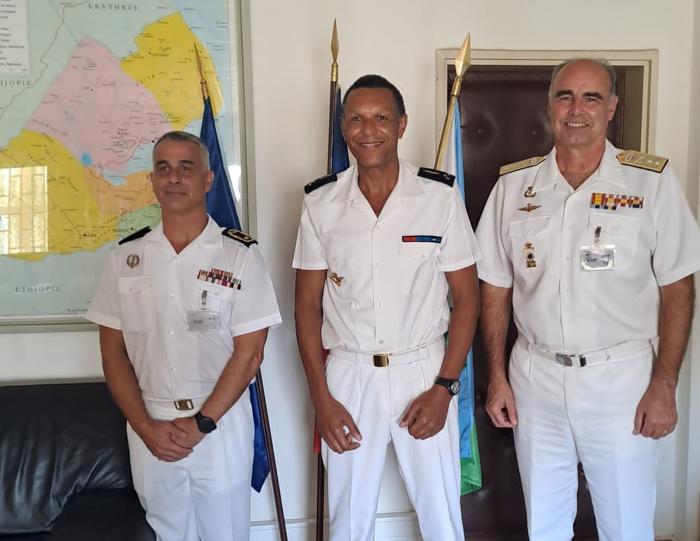
On 4 December, EUNAVFOR Operation Commander Vice Admiral Ignacio Villanueva paid a visit to French Forces stationed in Djibouti Commander, Major General Laurent Boïté, appreciating the tireless efforts & commitment to Operation ATALANTA. In addition, the OPCDR introduced Commodore Martins de Brito, EUNAVFOR Force Commander for the coming months.

On 4 December, during Vice Admiral Ignacio Villanueva’s first visit to Djibouti as EUNAVFOR Operation Commander, he had the opportunity to meet with the deputy of the EU Delegation to Djibouti, Mr Krystian Spodaryk, discussing about the cooperation and the excellent relations with the Djibouti authorities and forces.
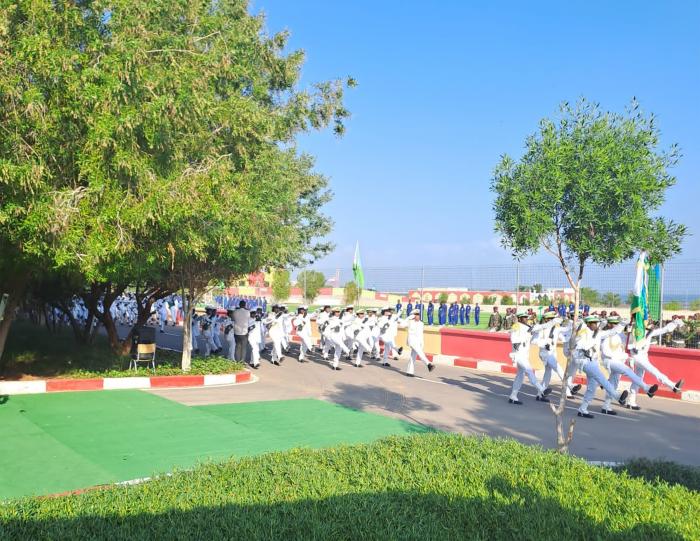
On 04 December, EUNAVFOR Operation Commander Vice Admiral Ignacio Villanueva and EUNAVFOR Force Commander Commodore Martins de Brito attended the ceremony to celebrate the 13th Anniversary of the Djibouti Coast Guard. In addition to ATALANTA's representatives, several partners were present at the event.
Djibouti is a key contributor to the Operation's success since the beginning of the operation in 2008.

On 08 December, Operation ATALANTA celebrated the 15th anniversary of its inception. On 08 December 2008, the European Naval Force Operation ATALANTA was launched, and for 15 years, it has fought piracy and provided maritime security in its Area of Operation. EUNAVFOR ATALANTA has faced challenges, constantly adapting to the evolving threats in the region and fulfilling its mandate.

On 12 December, the EUNAVFOR Operation Commander, Vice Admiral Ignacio Villanueva Serrano, chaired the XIV Industry Strategy Meeting in London.
This meeting is a unique framework to provide the most relevant representatives of the shipping industry with an update on the maritime security situation in the North-West Indian Ocean and Red Sea and to learn first-hand about their concerns and needs regarding maritime traffic security.
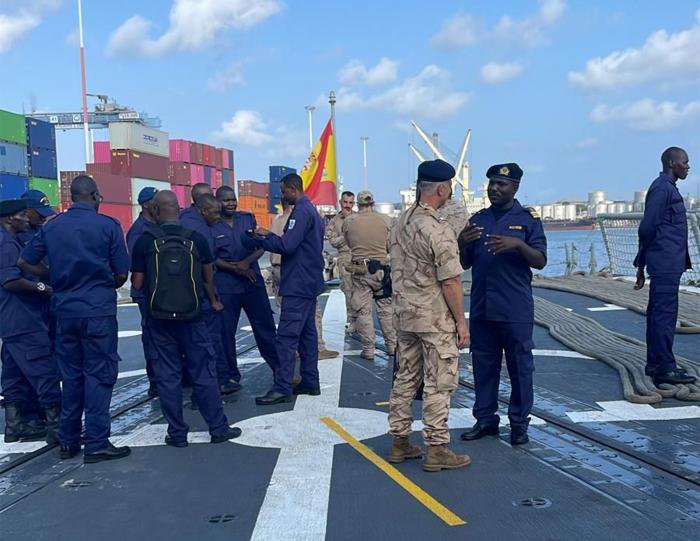
On 12 December, during the port visit to Mombasa, Operation ATALANTA flagship ESPS VICTORIA crewmembers conducted Capacity Enhancement activities with the Kenya Coast Guard.
One of the procedures carried out was the Vessel Boarding, and the “Boarding, Search and Seizure (VBSS)” procedure, aimed at inspecting suspect vessels.
The exchange of experiences and mutual trust are two main objectives of these regular activities.

On 12 December, EUNAVFOR flagship ESPS VICTORIA escorted the World Food Program vessel MV DOLORES in her transit in the Area of Operations to deliver humanitarian aid in the region.
EUNAVFOR Force Commander Commodore Martins de Brito had the opportunity to meet the crew and conveyed the permanent availability to provide support whenever necessary.
Protecting the World Food Program and other Vulnerable Shipping vessels is one of the main tasks of Operation ATALANTA.
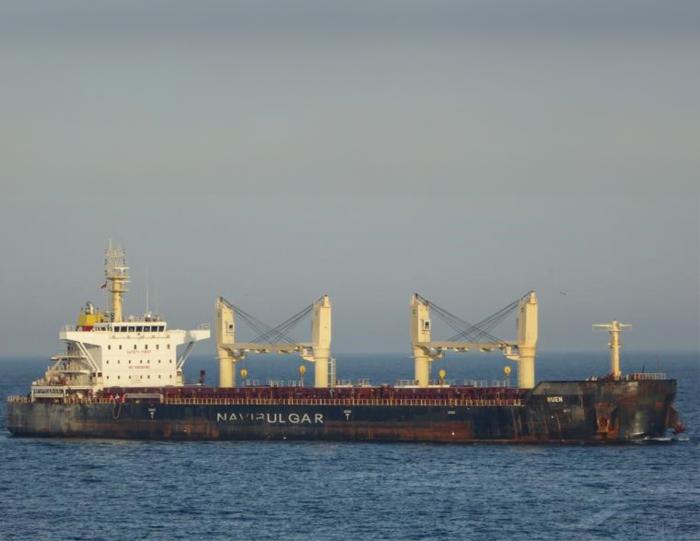
On 14 December, the MV RUEN was hijacked, as confirmed by its captain and by the alert that was sent to the Operation ATALANTA’s Joint Operation Centre. The ship left the port of Gwangyang (South Korea) with a cargo of metals. Right after, the EUNAVFOR Flagship ESPS VICTORIA was directed to rapidly close to the RUEN to gather more information and evaluate further actions, in coordination with the Somali local authorities and other security partners in the region.
During the early hours of the 15th, an Indian maritime patrol plane spotted the merchant ship, establishing radio communications with the crew. According to the information received, the 18 crewmembers were fine, locked up in the citadel. Hours later, the pirates managed to break into the citadel and extracted the crew.
In the early hours of the 16th, the Japanese Navy ship AKEBONO, under the Combined Maritime Forces (Combined Task Force 151) command, and the Indian Navy ship KOCHI arrived in the vicinity of the hijacked ship, joining ESPS VICTORIA. Since then, continuous exchanges of information and coordination efforts were performed regularly. Key to situational awareness was the EUNAVFOR unmanned aerial system SCAN EAGLE, based on ESPS VICTORIA and punctually collecting data from the merchant vessel.
In the early morning of the 18th, a member of the crew of the MV RUEN was evacuated to the INS KOCHI, for medical care. The medical team on board the ESPS VICTORIA remained available, in case its support would be necessary.
The ESPS VICTORIA was able to continuously tracking the MV RUEN, even inside the Somalia Territorial Waters, thanks to an ad-hoc permission granted by the Federal Government of Somalia.
Currently, the coordination among partners, including the Somali local authorities, is smooth and efficient, and it keeps the merchant ship continuously monitored.

On 18 December, EUNAVFOR participated in the extraordinary meeting convened by the Djibouti Code of Conduct /Jeddah Amendment (DCOC/JA) to discuss the increasing threats to commercial shipping in the Red Sea area.
The Republic of South Africa chaired the meeting, the DCOC/JA Steering Committee Chair, Mr Metse Ralephenya. It was attended by representatives from 20 nations and several maritime security partners, such as CRIMARIO, INTERPOL, the Regional Coordination Operations Centre (RCOC), the Regional Maritime Information Fusion Centre (RMIFC), the United Nations Office on Drugs and Crime (UNODC) and the Combined Maritime Forces (CMF).
The meeting deliberated on the recent developments regarding threats against commercial vessels in the Red Sea Area and discussed areas of cooperation and information sharing. Practices such as BMP 5 were considered necessary to ensure safe transit in the region.

On 19 December, EUNAVFOR and the European Maritime Safety Agency (EMSA) held their latest regular meeting via VTC. This series of engagements has set a solid foundation for fluent collaborative efforts.
With improved communication channels and a clear focus on operational efficiency and security, EUNAVFOR and EMSA enhance synergies to navigate the complex area of operation with maximum coordination.

On 19 December, Operation Atalanta and the World Food Programme (WFP) met via VTC. During the meeting, EUNAVFOR Operation Commander Vice Admiral Ignacio Villanueva Serrano provided an overview of the current maritime security situation in the area of operations. Discussions about improving and emphasising the WFP vessels' security within EUNAVFOR means and capabilities were held.

On 20 December, the EUNAVFOR OHQ, led by the EUNAVFOR Operation Commander, Vice Admiral Ignacio Villanueva Serrano, and the EU Political and Security Committee held a virtual meeting about the current situation in Red Sea and how EU can contribute to the international efforts in tackling the new maritime security challenges, in a most crucial global transit route.

On 24 December, EUNAVFOR celebrates and congratulates all its staff, partners and friends for Christmas.
These assets participated in EUNAVFOR’s operations during the month of December:

